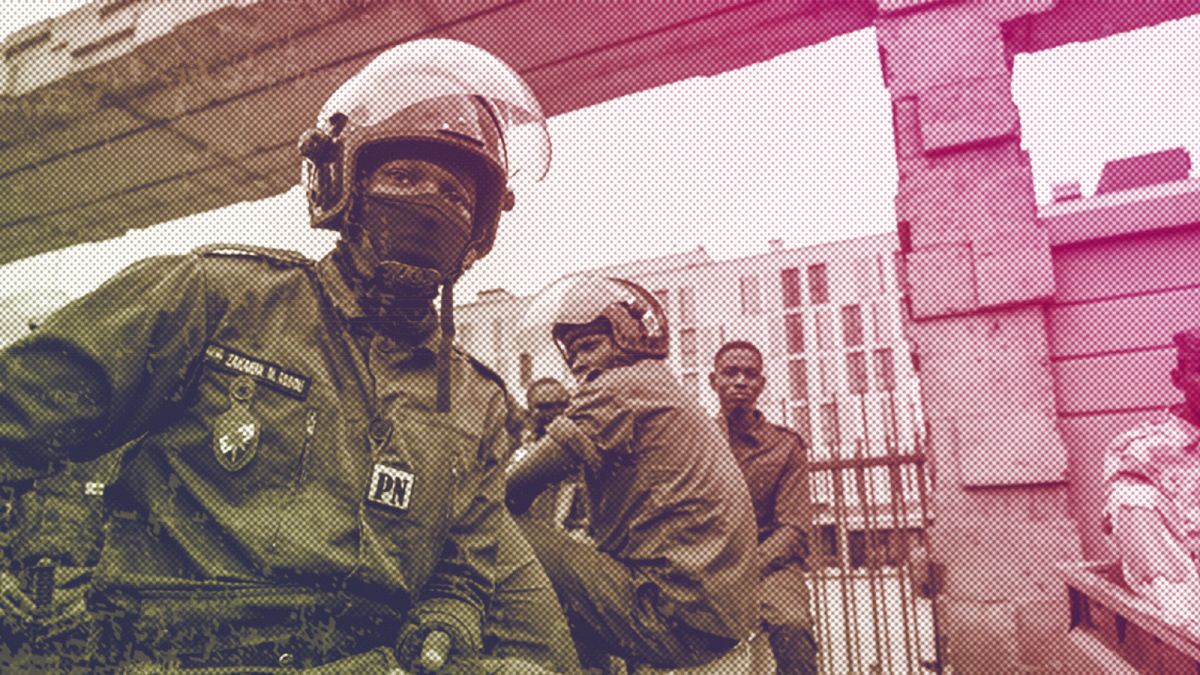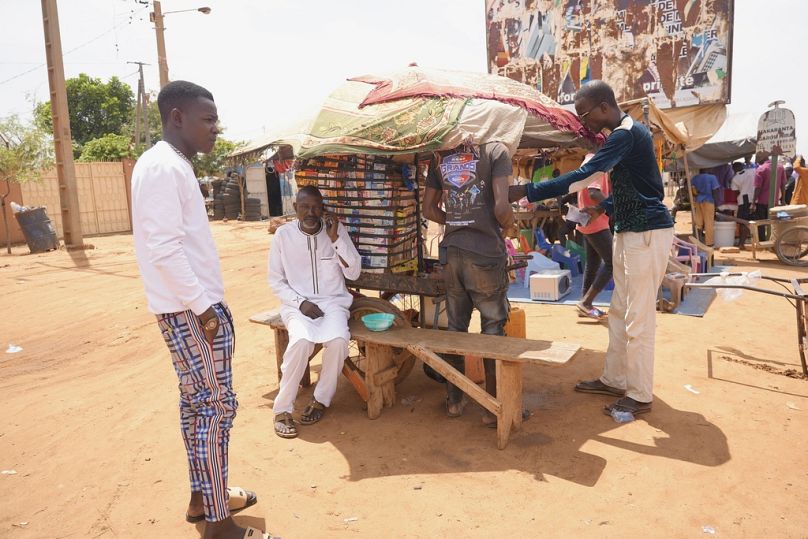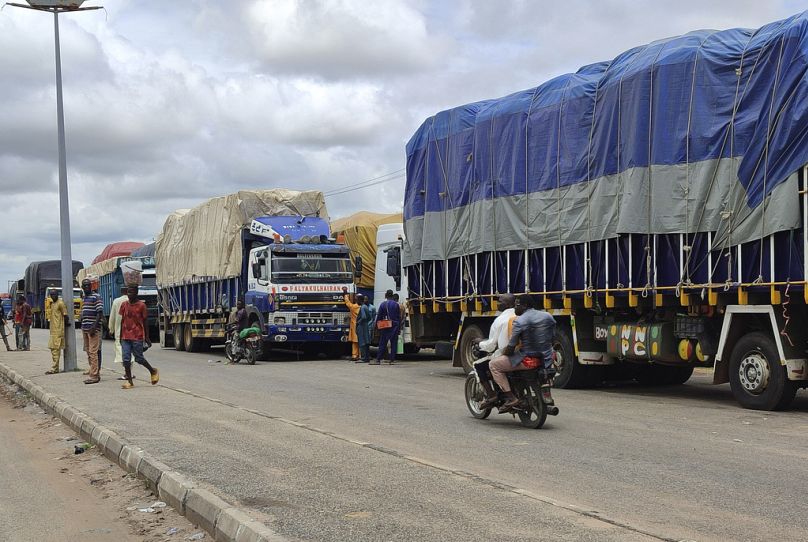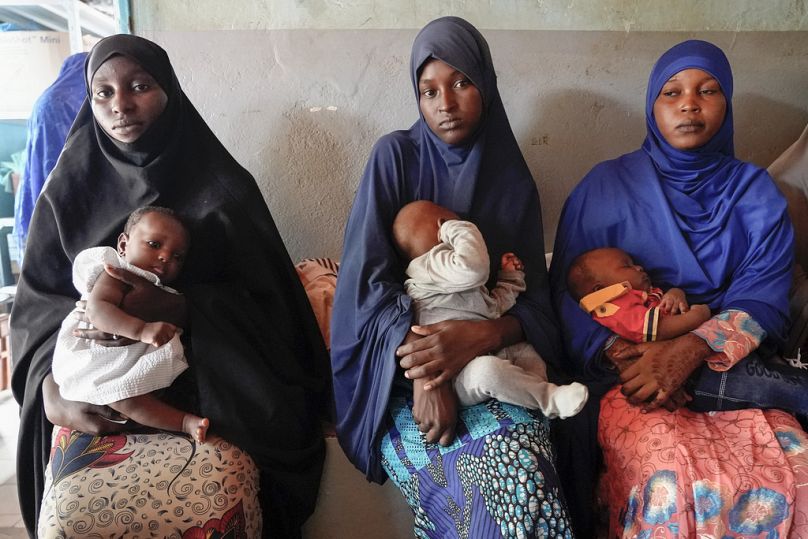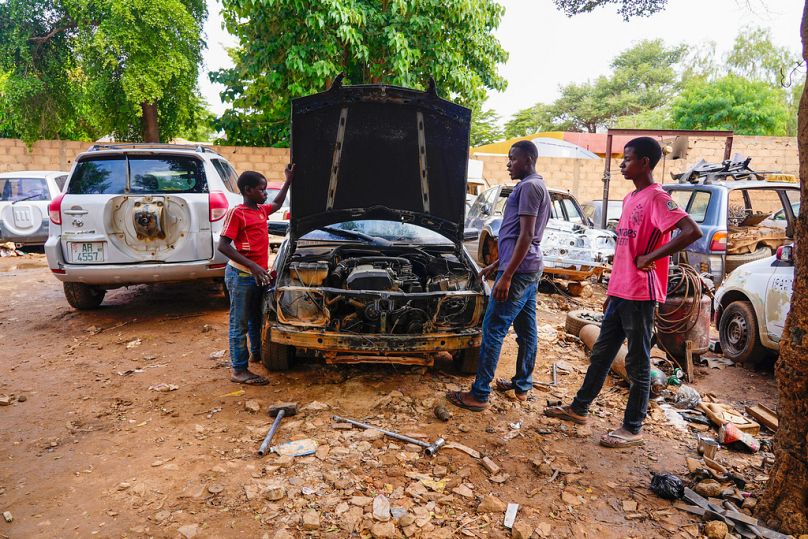We must remember that the impact of prolonged instability extends far beyond geopolitical concerns — it deeply affects the lives of real people, families, and communities, Paolo Cernuschi writes.
The recent coup in Niger, a West African country already grappling with prolonged poverty and instability, has threatened to exacerbate the challenges faced by vulnerable groups within the country.
As the Country Director of the International Rescue Committee in Niger, I am deeply concerned about the severe consequences of prolonged instability not only of the coup but of our collective response to it.
Niger was already one of the world's poorest nations, struggling disproportionately with the effects of climate change and the destabilizing regional presence of armed groups.
Yet progress was being made: GDP growth last year was 7.2% and was projected to reach almost 12% next year.
Attacks on civilians by armed groups were consistently decreasing, to the point where concrete plans were in progress for the return of the 350,000 internally displaced persons to their homes.
This positive trend could now be reversed, and humanitarian needs could reach a level not before seen in Niger.
Widespread food insecurity is set to get even worse
In response to the coup in Niger on 26 July, the international community reacted with three main responses: regional organisation ECOWAS imposed harsh economic sanctions and border closures; the same organisation threatened military intervention to restore constitutional order; and donor countries suspended to varying degrees their aid to Niger.
All these decisions could have disastrous humanitarian impacts on the most economically vulnerable people my organisation serves.
Even before the current crisis, approximately 3.3 million people, constituting 13% of the population, were living in a state of food insecurity.
In the week following the announcement of the sanctions, the average price of rice increased by 17%. Local farmers and herders who rely on regional trade are seeing their livelihood opportunities dim.
Border closures further compound the crisis, preventing life-saving humanitarian supplies from reaching the communities that need them most.
While intended to maintain order and security, these closures hinder the flow of essential aid, creating a barrier that separates people from the assistance they require to survive.
Organisations cannot get critical supplies in. We have en route shipments of life-saving nutritional supplements for 2,300 children that we don’t know when we’ll receive. While we have contingency stocks in place, those will eventually run out.
Sanctions could also hamper other humanitarian efforts
If border closures and sanctions persist, aid supplies running out will be all but a certainty, and the capacity of humanitarian actors to continue delivering will be jeopardised.
By some estimates, supplies in the country at the time of the coup were sufficient for two to three months of humanitarian response. With supply chains requiring from a few weeks to a couple of months to replenish stocks, we are fast approaching the point where shortages will be inevitable.
Cash shortages occurred immediately after the sanctions were imposed, driven by the interruption of transactions within the regional monetary union and a run on banks.
The situation has moderately improved but strict withdrawal limits are still in place, complicating the work of implementers of cash-based programming.
Protracted cash shortages will make it difficult to continue doing so, threatening one of the most effective ways of delivering aid.
It is clear that these sanctions, while intended to influence political change and stand up for democracy and international norms, have unintended adverse impacts on the lives of ordinary citizens who are already struggling to meet their basic needs.
That is why, at the very least, humanitarian exemptions must be guaranteed to ensure continuity of humanitarian work in Niger.
The 'do no harm' approach must be prioritised
At the same time, the spectre of a catastrophic military intervention looms, with real fears of regional spillovers.
In Niamey, it is quietly discussed as a not-so-distant fear, as few want to really contemplate that scenario.
But its effects on the humanitarian situation in Niger and neighbouring countries would be disastrous, increasing human suffering and growing the humanitarian need beyond what could conceivably be supported.
For this reason, the international community and regional organisations must prioritise a “do no harm” approach in dealing with this situation.
Finally, aid suspension announced by several countries is worrying, particularly when it affects programs designed to provide basic services to communities.
When, for example, funding to NGO programs supporting the economic development of rural communities is suspended, it directly affects people who are already vulnerable and who have limited power to influence change in a capital city hundreds of kilometres away.
It undermines years of investments in strengthening community resilience in the face of shocks and crises. And in the longer term, it increases the need for emergency food assistance, putting further pressure on already stretched humanitarian funding.
We have to prioritise the well-being of all Nigeriens
Years of steady progress in local development and in countering extremism, and with it, hopes of creating a safe future and durable solutions for the people of the region, can backslide quickly if support for communities just stops.
Diplomatic efforts should focus on finding peaceful solutions that prioritise the well-being of all Nigerien citizens, regardless of their socio-economic status.
We must remember that the impact of prolonged instability extends far beyond geopolitical concerns; it deeply affects the lives of real people, families, and communities.
The situation in Niger calls for a coordinated and compassionate response that upholds the principles of humanitarianism and ensures that no one is left behind. And the Nigerien people deserve that and a whole lot more.
Paolo Cernuschi serves as Niger Country Director at the International Rescue Committee (IRC).
At Euronews, we believe all views matter. Contact us at view@euronews.com to send pitches or submissions and be part of the conversation.
